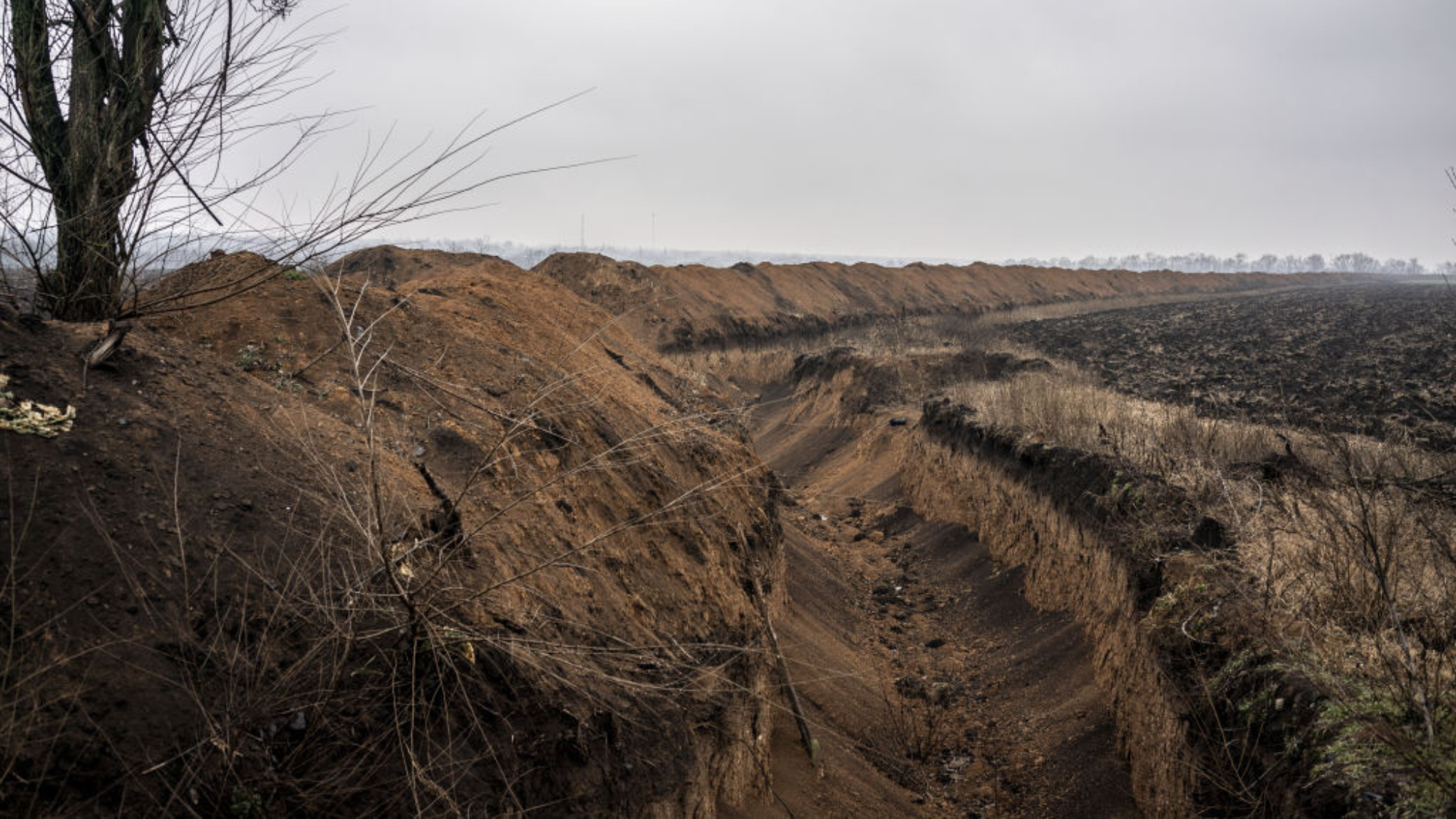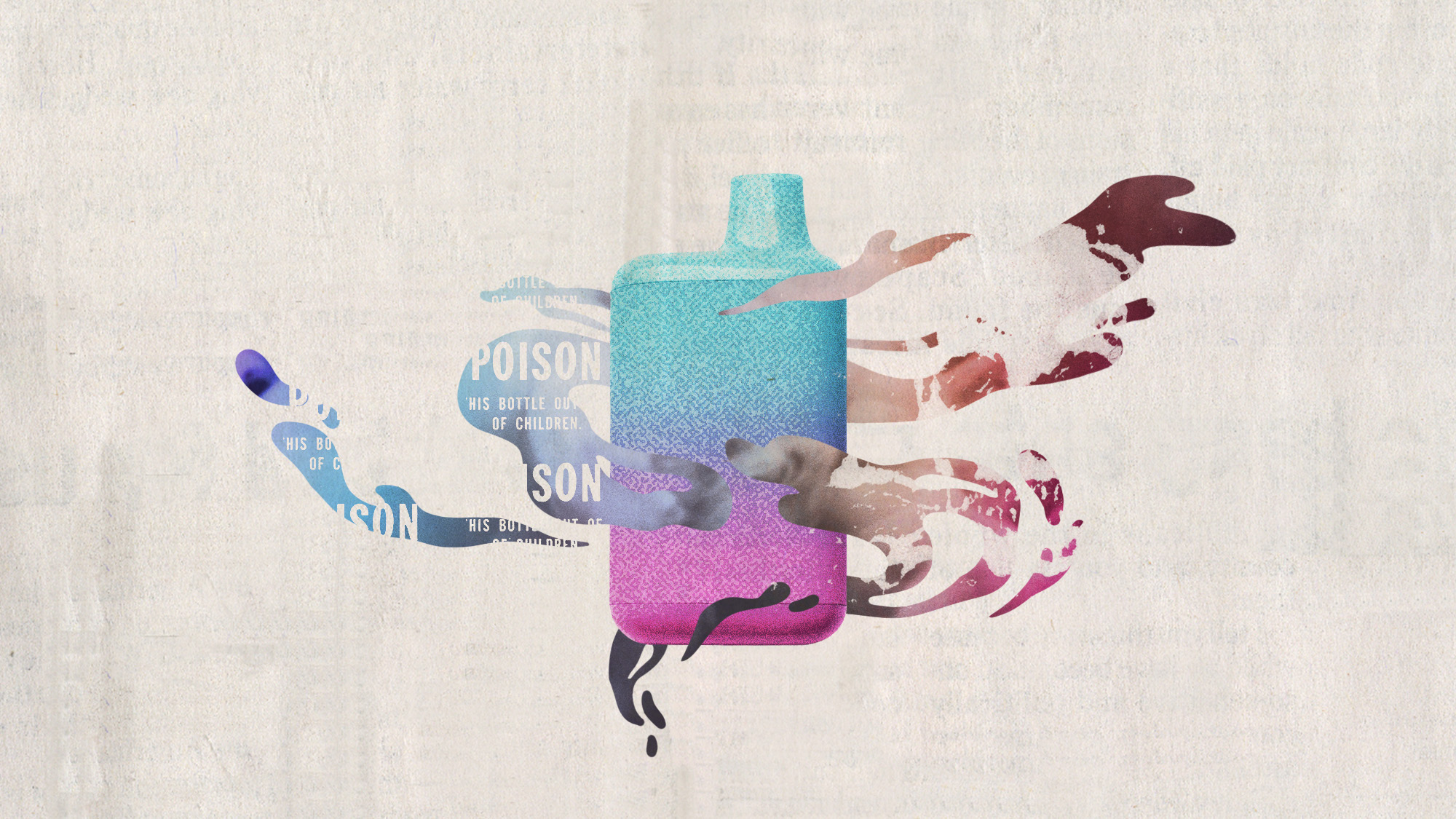Drug use rife among Russian soldiers in Ukraine
Frontline troops 'easily' access illegal substances, which can cause paranoia and hallucinations

A free daily email with the biggest news stories of the day – and the best features from TheWeek.com
You are now subscribed
Your newsletter sign-up was successful
Russian soldiers in occupied regions of Ukraine frequently take synthetic drugs and smoke marijuana, according to a report.
Verstka, an independent Russian news website, spoke with "dozens" of soldiers and residents in Russian-occupied Ukraine "to build a picture of the abuse", said The Times. It found that soldiers could "easily" get drugs delivered to their trenches, "either sold by locals, delivered unwittingly by volunteers" or "brought in by the men themselves".
"It's like Las Vegas," one soldier told Verstka. "Everyone knows if you're taking drugs in the trenches, of course – the dugout is small. Nobody gives a damn; the main thing is not to bother anyone." Substance abuse takes place on both the frontlines and rear positions, according to the report.
The Week
Escape your echo chamber. Get the facts behind the news, plus analysis from multiple perspectives.

Sign up for The Week's Free Newsletters
From our morning news briefing to a weekly Good News Newsletter, get the best of The Week delivered directly to your inbox.
From our morning news briefing to a weekly Good News Newsletter, get the best of The Week delivered directly to your inbox.
Mephedrone, amphetamines and alpha-PVP, known as "salt", are among the substances soldiers frequently take, with effects including "paranoia and hallucinations", said The Times. The drugs aren't cheap, due to "the risk of delivery in the war zone". Some soldiers use the Telegram app to arrange deliveries with dealers.
One user told Verstka that soldiers take drugs "out of boredom. War is when you're constantly waiting for something, occasionally praying for it all to be over." Another said he had also known of Ukrainian soldiers taking drugs.
Russia is "thought to have struggled to maintain discipline and morale" among its troops in Ukraine, said The Times, as soldiers have reacted to "incompetent superiors and high numbers of casualties".
In June, Radio Free Europe reported that health specialists were concerned "about a spike in drug addiction" as thousands of soldiers returned to Russia. Polish historian Lukasz Kamienski told the news organisation that "drug addiction among soldiers has a long history".
A free daily email with the biggest news stories of the day – and the best features from TheWeek.com
For some servicemen, he said, "such self-medication is often the only way of reducing the psychological burden of combat and the horrors of war".
Julia O'Driscoll is the engagement editor. She covers UK and world news, as well as writing lifestyle and travel features. She regularly appears on “The Week Unwrapped” podcast, and hosted The Week's short-form documentary podcast, “The Overview”. Julia was previously the content and social media editor at sustainability consultancy Eco-Age, where she interviewed prominent voices in sustainable fashion and climate movements. She has a master's in liberal arts from Bristol University, and spent a year studying at Charles University in Prague.
-
 How the FCC’s ‘equal time’ rule works
How the FCC’s ‘equal time’ rule worksIn the Spotlight The law is at the heart of the Colbert-CBS conflict
-
 What is the endgame in the DHS shutdown?
What is the endgame in the DHS shutdown?Today’s Big Question Democrats want to rein in ICE’s immigration crackdown
-
 ‘Poor time management isn’t just an inconvenience’
‘Poor time management isn’t just an inconvenience’Instant Opinion Opinion, comment and editorials of the day
-
 Will increasing tensions with Iran boil over into war?
Will increasing tensions with Iran boil over into war?Today’s Big Question President Donald Trump has recently been threatening the country
-
 Putin’s shadow war
Putin’s shadow warFeature The Kremlin is waging a campaign of sabotage and subversion against Ukraine’s allies in the West
-
 Alexei Navalny and Russia’s history of poisonings
Alexei Navalny and Russia’s history of poisoningsThe Explainer ‘Precise’ and ‘deniable’, the Kremlin’s use of poison to silence critics has become a ’geopolitical signature flourish’
-
 US, Russia restart military dialogue as treaty ends
US, Russia restart military dialogue as treaty endsSpeed Read New START was the last remaining nuclear arms treaty between the countries
-
 What happens now that the US-Russia nuclear treaty is expiring?
What happens now that the US-Russia nuclear treaty is expiring?TODAY’S BIG QUESTION Weapons experts worry that the end of the New START treaty marks the beginning of a 21st-century atomic arms race
-
 Epstein files topple law CEO, roil UK government
Epstein files topple law CEO, roil UK governmentSpeed Read Peter Mandelson, Britain’s former ambassador to the US, is caught up in the scandal
-
 Mexico’s vape ban has led to a cartel-controlled black market
Mexico’s vape ban has led to a cartel-controlled black marketUnder the Radar Cartels have expanded their power over the sale of illicit tobacco
-
 Iran and US prepare to meet after skirmishes
Iran and US prepare to meet after skirmishesSpeed Read The incident comes amid heightened tensions in the Middle East